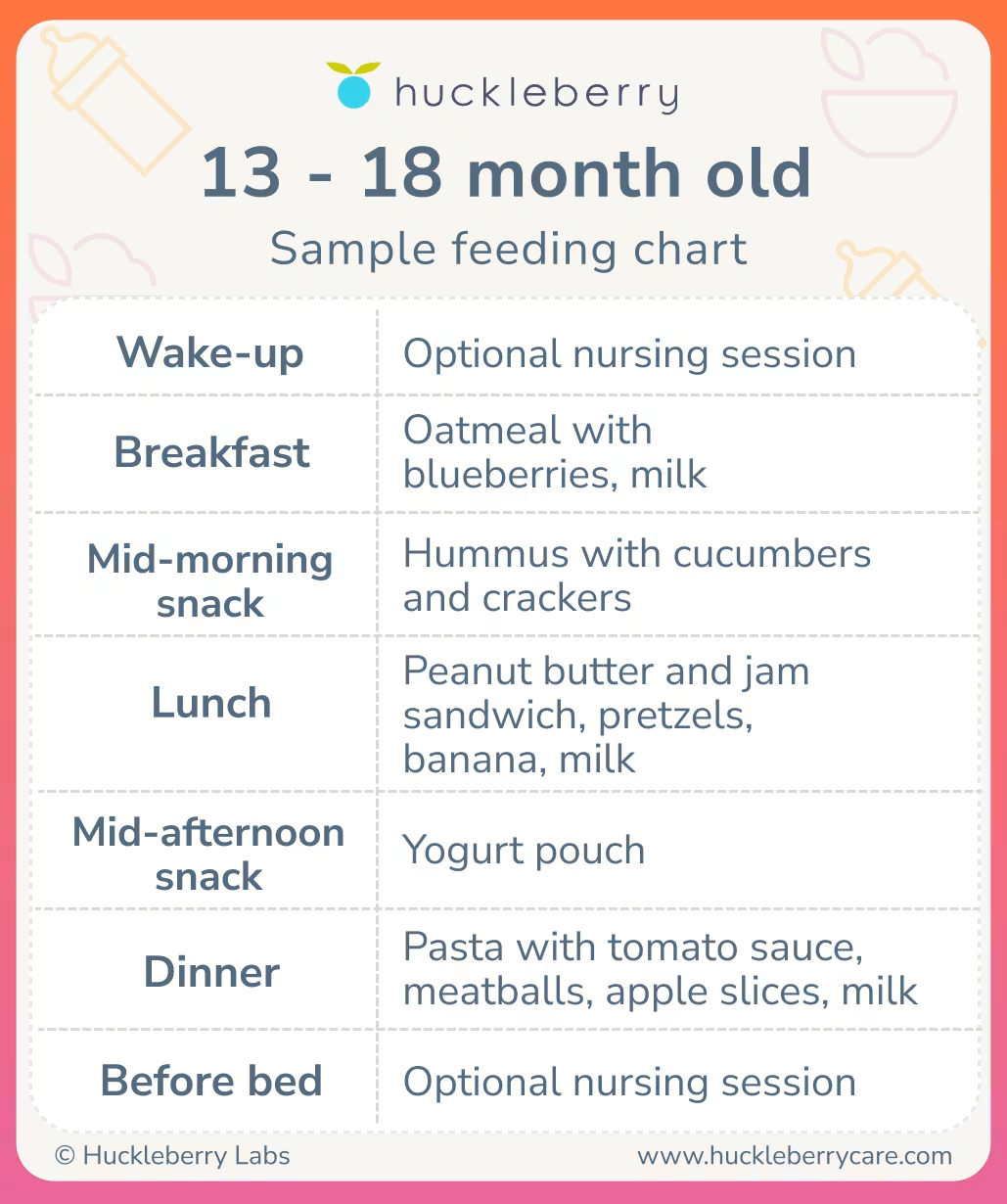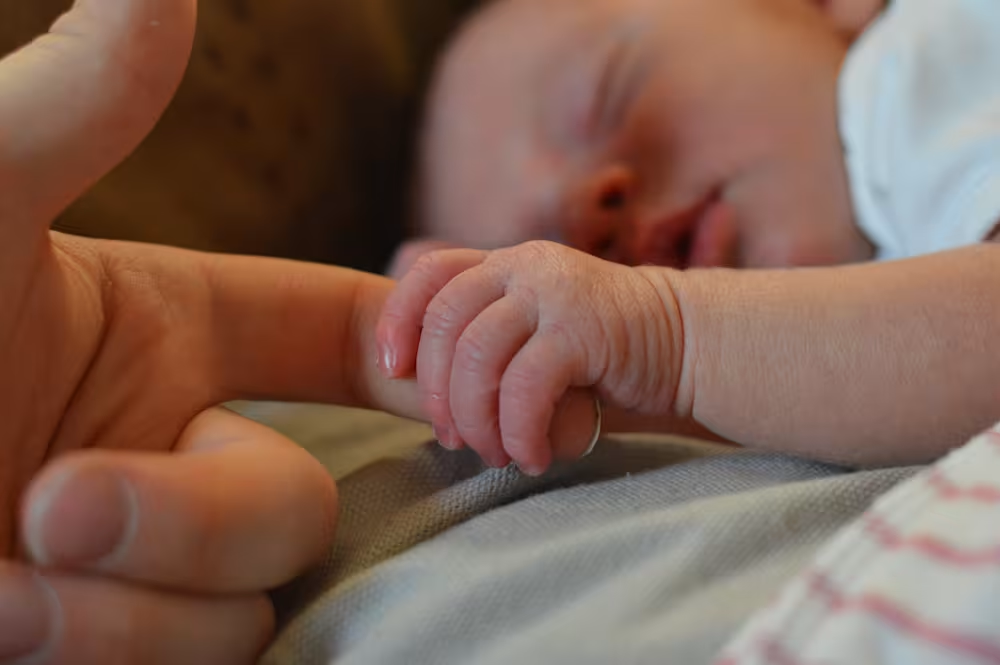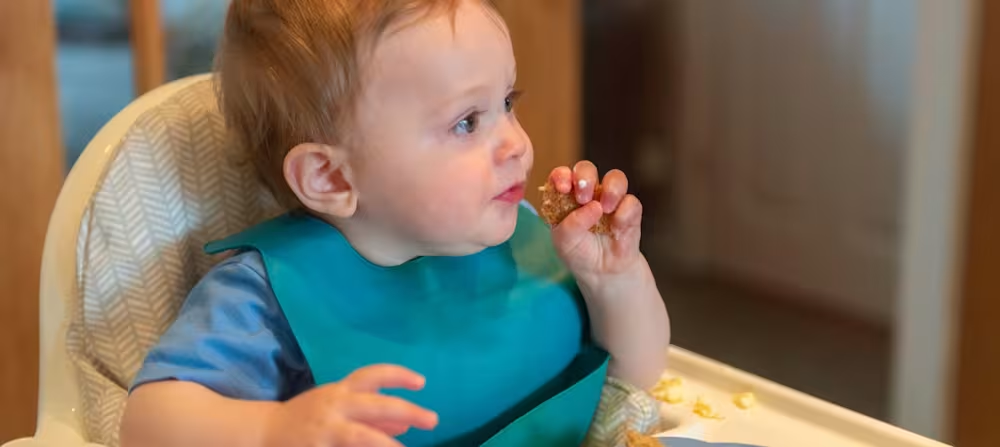13 - 18 month old baby feeding schedule: How much should they eat?
Updated Jan 02, 2026

After your baby’s first birthday, it’s full speed ahead into toddlerhood! And with that, may come rapidly developing eating skills. Your child can likely now eat most foods, experiment more with utensils and open cups, and make their likes and dislikes known. Keep reading for all you need to know about feeding your 13 - 18 month old toddler.
13 - 18 month old sample feeding schedule
Around 13 months old, your toddler may still be in transition from liquid feedings to more solid food meals. Keep at it! By about 15 months, your child may be eating three meals and two snacks on most days. You may continue to nurse if you wish, but the goal is still for nutrition to come mostly from food so consider limiting nursing sessions if they are interfering with solid food consumption. If your child is drinking animal or other non-dairy milk, they should drink no more than 16 - 24 oz a day.
The following feeding schedule is meant to be a guide and can be modified to fit your family’s needs.
Sample feeding schedule for a 1-nap schedule
Sample feeding schedule for a 2-nap schedule
How much to feed a 13 - 18 month old: Food chart
Your toddler will start depending on solid foods to get the nutrition they need to grow. It’s recommended to move away from bottles and toward and snacks including roughly and two snacks per day.
13 - 18 month feeding chart

Tips for feeding your 13 - 18 month old baby
Tip | Notes |
Be aware of appetite changes | Growth slows after age one, so your toddler may eat less and that’s normal. They’re adjusting their intake to match their body’s needs. |
Learn to deal with picky eating | Picky eating is a normal toddler phase. Keep offering a variety of foods without pressure, include at least one familiar food per meal, and avoid becoming a short-order cook. |
Follow the division of responsibility | You decide what, when, and where food is served then your child decides if and how much to eat. This approach helps prevent mealtime power struggles. |
Practice utensils and cup use | Continue letting your toddler eat with their hands but offer utensils and a cup at every meal. Model how to use them and celebrate their effort. |
Be conscious of beverage choices | Offer mostly water and whole milk. If using non-dairy alternatives, choose fortified options and ensure protein and fat come from other foods. |
Tip #1: Be aware of appetite changes
Your child’s rate of growth slows by a lot after they turn one year old. This means they need less energy (food) overall to support growth and development.
So while it may feel like your child is eating way less than normal (and maybe they are!), it’s OK. They are just adjusting their intake according to their body’s needs.
Tip #2: Learn to deal with picky eating
Most toddlers will go through some sort of phase and that’s perfectly normal! Taking it in stride will help ensure your kiddo grows out of this phase. Overall, keep serving foods even if they don’t eat them and avoid becoming a short-order cook as much as you can.
When possible, serve a food they will eat with every meal and snack alongside other foods. Trust your child to eat when they are ready.
Tip #3: Follow the division of responsibility
Toddlers love to make their opinions known and this can lead to power struggles at mealtime. Defuse them quickly with the words “You don’t have to eat it if you don’t want to.” This simple phrase follows the division of responsibility, a practice that gives mealtime “jobs” to the parent/caregiver and to the child.
The parent/caregiver decides what is being served, when it will be served, and where it will be served. The child decides if they will eat it and how much.
Tip #4: Practice utensils and cup use
Many kids eat with their hands well into the toddler years, especially for foods that are more difficult to eat with a utensil.
It's a good habit to provide a utensil and cup for meals and snacks so they can practice. Model how to use them and praise them for trying.
Tip #5: Be conscious of beverage choices
Professional health organizations agree 13 - 18 month olds should drink primarily plain water and unflavored, full-fat animal milk [] with consumption not exceeding 16 - 24 oz/day. These drinks provide the hydration and nutrition toddlers need.
It's worth mentioning that many non-dairy milk alternatives contain less protein and fat compared to cow's milk, which means you'll have to source these nutrients from other food sources if you offer non-dairy milk alternatives.
If serving fruit juice, limit to 4 oz of 100% fruit juice a day.
Night feedings at 13 - 18 months old
Night feedings are typically not needed for 13 - 18 months olds. Help your child through the night by offering sufficient calories during the day and offering plenty of opportunities for them to be physically active. If you serve dinner early or find your child is truly hungry at bedtime, try serving a small bedtime snack about 30 minutes before bed. Serve something with a mix of protein and carbohydrates such as crackers with peanut butter, fruit and cheese sticks, or yogurt.
Also note that children may go through a period of sudden disrupted sleep at this age, commonly referred to as the .
Takeaway
Daily intake: It’s recommended to move toward and snacks each day, which may look like and two snacks per day.
Appetite changes are normal: Your little one may eat less now and that's OK. They’re adjusting their intake to match their body’s needs.
Power struggles may pop up at meal times: As your child enters toddlerhood, they may be more eager to exert their newfound independence when it comes to what they eat. This is frustrating but normal.
If you’re curious about what lies ahead when it comes to feeding, check out a . Take a look back at how far you’ve come by revisiting a .
Share article:
Note: The content on this site is for informational purposes only and should not replace medical advice from your doctor, pediatrician, or medical professional. If you have questions or concerns, you should contact a medical professional.
1 Sources
Share article:








